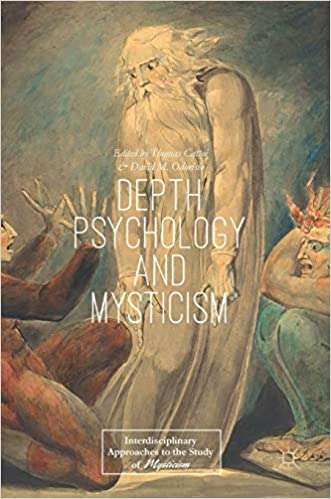This chapter focuses on Velvet Goldmine (1998) and argues that Todd Haynes represents Bowie’s Ziggy Stardust persona as a series of phantoms in the Derridean sense. That is, figures that are both absent and present, material and immaterial— figures that affirm that no identity can ever be quite complete since the markers of identity are always enmeshed in a network of differences that can be continually re-coded. Haynes’ original script contained several Bowie songs, which he was forced to replace when Bowie refused to give him permission to use the music (Bowie claimed he intended to make his own film about his Ziggy Stardust period). Undeterred, Haynes produced a movie that made no direct reference to Bowie by name, yet recoded Bowie’s multiple personas and characters in a parallel cinematic world. Haynes’ film invites the spectator to re-think Identity in terms of ‘contamination’ and ‘inauthenticity’. He also establishes a genealogical connection between Oscar Wilde (one of the film’s many spectres) and Bowie by making several allusions to the parallels between 19th century aestheticism and Glam Rock. In short, I argue that Haynes’ film facilitates a critique of the idea that Bowie’s shifting identity is merely a question of aesthetic choice, or an expression of any kind of cultural logic. Rather, I argue that the figure of the Derridean phantom offers a new way to read Velvet Goldmine, and to identify the cultural work performed by Bowie’s Ziggy Stardust persona.
“Recent developments in both depth psychology and the study of mysticism make this an opportune time to reassess the relationship between the two fields. The contributors to this volume, who come from a diversity of disciplinary perspectives, have produced a rich collection of stimulating essays. Taken as a whole, the volume serves as a comprehensive and reliable introduction to the best current scholarship on this fascinating topic.” (Arthur Holder, Professor of Christian Spirituality, Graduate Theological Union, Berkeley, CA, USA)
“Werner Heisenberg once said that the most fertile developments in the history of thought are born at the intersection of two currents of ideas. This timely volume beautifully fulfills this promise. It brings together papers on depth psychology and religion, and argues for an experiential hermeneutic of numinous experiences, made possible—uniquely—by depth psychology’s vision. For those of us working in the trenches of depth psychotherapy who keep encountering the numinous ‘light inside the darkness’ of clinical process, these essays are a vital contribution to our work and understanding.” (Donald Kalsched, Clinical Psychologist and Jungian Psychoanalyst, Santa Fe, NM, USA, and author of Trauma and the Soul: A Psycho-spiritual Approach to Human Development and its Interruption, 2013)
“It is well known to historians of depth psychology that the word ‘mysticism’ was loaded with negative connotations for most of the twentieth century…Times have changed in the field of psychoanalysis, and now the intersection of depth psychology and mystical experience activates the excitement of clinicians and theoreticians alike. The current volume is a remarkable testimony to the emerging intersection of individual spiritual experience and the explorations of depth psychological clinicians. It is an important read for anyone who is serious about the current understanding of these issues.” (Richard Stein, Jungian Analyst, San Francisco Jung Institute, San Francisco, CA, USA)
“When various academic disciplines collide, on occasion they eventually collude and even congeal into new forms of knowing. Such a series of encounters and armistices is nowhere more true than in the essays that comprise Depth Psychology and Mysticism. Herein an amazing roster of scholars cast both a ‘reverent’ and a critical eye on these two rich areas of study, so to ‘forge a new context,’ as one contributor phrases it, that reimagines rich and original third perspectives from the convergence of psyche, body and spirit in renewed cultural contexts.” (Dennis Patrick Slattery, Professor Emeritus, Pacifica Graduate Institute, Santa Barbara, CA, USA, and author of A Pilgrimage Beyond Belief: Spiritual Journeys Through Christian and Buddhist Monasteries of the American Southwest, 2017)
“Depth Psychology and Mysticism … offer[s] a fresh, inter-disciplinary perspective from the fields of theology, religious studies and depth psychology that demonstrates the extraordinary developments taking place in the field.” (Brendan Collins, Professor Emeritus, California Institute of Integral Studies, San Francisco, CA, USA, and Director, Center for Contemplative Psychology, Berkeley, CA, USA)
“This splendid collection offers a view of mysticism from tradition-based and depth psychological perspectives. The book sheds light on Jung and Hillman, Hasidism and Zen Buddhism, alchemy and love mysticism, providing a glimpse into the range of views and practices that continue to inform the spiritual quest for self-knowledge.” (Christopher Key Chapple, Doshi Professor of Indic and Comparative Theology and Director, Master of Arts in Yoga Studies, Loyola Marymount University, Los Angeles, USA)
A New Gnosis: Comic Books, Comparative Mythology, and Depth Psychology
, 2023
Superhero phenomena exploded into 20th and 21st century popular culture by way of the visual medi…
more
“[S]uperhero comics and science fiction…can and do function as transmission sites for what David Odorisio has called the “new gnosis.” Superpowers are real. So are the altered states of knowing and excessively weird paranormal phenomena or “special effects”…that often lie behind the conception and within the very artistic execution of these genres on the page, on screen, and in life. This is, by far, the most important resonance between [my own Mutants and Mystics] and this book-the gnostic transmission. I would immediately add that the vast, vast majority of such psi-fi gnostics will never be known as such. They exist silently in the margins of the culture, which, paradoxically, is also somehow the center.” – Jeffrey J. Kripal, from the Afterword
“Recent developments in both depth psychology and the study of mysticism make this an opportune time to reassess the relationship between the two fields. The contributors to this volume, who come from a diversity of disciplinary perspectives, have produced a rich collection of stimulating essays. Taken as a whole, the volume serves as a comprehensive and reliable introduction to the best current scholarship on this fascinating topic.” (Arthur Holder, Professor of Christian Spirituality, Graduate Theological Union, Berkeley, CA, USA)
“Werner Heisenberg once said that the most fertile developments in the history of thought are born at the intersection of two currents of ideas. This timely volume beautifully fulfills this promise. It brings together papers on depth psychology and religion, and argues for an experiential hermeneutic of numinous experiences, made possible―uniquely―by depth psychology’s vision. For those of us working in the trenches of depth psychotherapy who keep encountering the numinous ‘light inside the darkness’ of clinical process, these essays are a vital contribution to our work and understanding.” (Donald Kalsched, Clinical Psychologist and Jungian Psychoanalyst, Santa Fe, NM, USA, and author of Trauma and the Soul: A Psycho-spiritual Approach to Human Development and its Interruption, 2013)
“It is well known to historians of depth psychology that the word ‘mysticism’ was loaded with negative connotations for most of the twentieth century…Times have changed in the field of psychoanalysis, and now the intersection of depth psychology and mystical experience activates the excitement of clinicians and theoreticians alike. The current volume is a remarkable testimony to the emerging intersection of individual spiritual experience and the explorations of depth psychological clinicians. It is an important read for anyone who is serious about the current understanding of these issues.” (Richard Stein, Jungian Analyst, San Francisco Jung Institute, San Francisco, CA, USA)
“When various academic disciplines collide, on occasion they eventually collude and even congeal into new forms of knowing. Such a series of encounters and armistices is nowhere more true than in the essays that comprise Depth Psychology and Mysticism. Herein an amazing roster of scholars cast both a ‘reverent’ and a critical eye on these two rich areas of study, so to ‘forge a new context,’ as one contributor phrases it, that reimagines rich and original third perspectives from the convergence of psyche, body and spirit in renewed cultural contexts.” (Dennis Patrick Slattery, Professor Emeritus, Pacifica Graduate Institute, Santa Barbara, CA, USA, and author of A Pilgrimage Beyond Belief: Spiritual Journeys Through Christian and Buddhist Monasteries of the American Southwest, 2017)
“Depth Psychology and Mysticism … offer[s] a fresh, inter-disciplinary perspective from the fields of theology, religious studies and depth psychology that demonstrates the extraordinary developments taking place in the field.” (Brendan Collins, Professor Emeritus, California Institute of Integral Studies, San Francisco, CA, USA, and Director, Center for Contemplative Psychology, Berkeley, CA, USA)
“This splendid collection offers a view of mysticism from tradition-based and depth psychological perspectives. The book sheds light on Jung and Hillman, Hasidism and Zen Buddhism, alchemy and love mysticism, providing a glimpse into the range of views and practices that continue to inform the spiritual quest for self-knowledge.” (Christopher Key Chapple, Doshi Professor of Indic and Comparative Theology and Director, Master of Arts in Yoga Studies, Loyola Marymount University, Los Angeles, USA)



